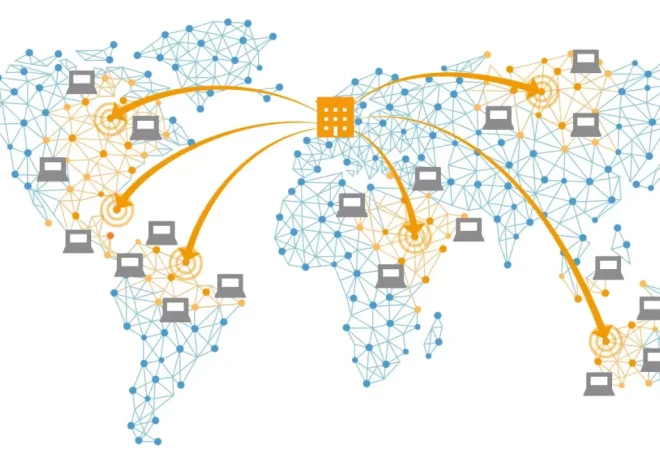How to Build High-Quality Backlinks for Your Website

In the ever-evolving world of SEO, one constant remains: backlinks matter. While Google’s algorithm has become more sophisticated over the years, quality backlinks still serve as one of the most powerful ranking signals. But not all backlinks are created equal. In fact, a handful of high-quality, relevant links can outperform hundreds of spammy ones. So, how do you earn backlinks that actually make a difference? Let’s break it down.
Understanding the Value of High-Quality Backlinks
Before diving into tactics, it’s important to understand why backlinks matter. A backlink is essentially a vote of confidence from one site to another. When a credible site links to yours, it’s signaling to search engines that your content is valuable, trustworthy, and worthy of citation. This can improve your domain authority and help your pages climb higher in search results.
But for a backlink to be high-quality, it should meet several criteria:
- It comes from a website with strong domain authority.
- The linking site is topically relevant to your niche.
- The link is placed within contextually appropriate content.
- It’s a dofollow link (most of the time).
- It’s earned naturally—not bought or traded.
With that in mind, let’s explore the most effective strategies for building high-quality backlinks today.
Publish Content Worth Linking To
No backlink strategy will work if your content isn’t worth referencing. Content that earns links often has one or more of the following traits:
- Original data or research: Surveys, case studies, and whitepapers can attract journalists, bloggers, and industry professionals who want to cite your findings.
- In-depth guides: Comprehensive resources (like this one) that deeply explore a topic tend to get shared and referenced more frequently.
- Visual assets: Infographics, charts, and visualizations can be highly shareable, especially when they simplify complex ideas.
- Tools and templates: Offering a free calculator, downloadable checklist, or template can position your site as a helpful resource worth linking to.
If your content provides real value and helps others do their job better, the backlinks will follow more organically.
Leverage Guest Posting (The Right Way)
Guest posting remains one of the most effective and scalable ways to earn quality backlinks. But like many SEO tactics, it’s often misused. Successful guest posting means:
- Reaching out to reputable websites in your niche, not random blogs with low authority.
- Offering genuinely valuable content tailored to the host site’s audience.
- Including a contextual backlink within the body of the article or in the author bio—whichever aligns with the site’s editorial standards.
Avoid spammy directories or link farms. Focus instead on building real relationships and contributing thoughtful, well-written articles to credible platforms.
Use the Skyscraper Technique
Popularized by Brian Dean of Backlinko, the Skyscraper Technique is a clever method of turning existing backlink-worthy content into something even better. Here’s how it works:
- Find content with lots of backlinks using tools like Ahrefs, SEMrush, or Moz.
- Create something better—more comprehensive, up-to-date, visually enhanced, or more actionable.
- Reach out to the linking sites and let them know about your improved version. Politely suggest they consider updating their link to your resource.
This method works best when you’re targeting evergreen topics with outdated or subpar content that has still managed to accumulate links.
Offer Testimonials or Case Studies
Brands love to showcase satisfied customers or success stories. If you use a particular product or service in your business, consider offering a testimonial in exchange for a backlink to your site. Most businesses will gladly link back to your website when featuring your comment.
Similarly, you can volunteer to be featured in a case study for a software company or service provider. These often include in-depth interviews and links to your site as a client reference.
Tap Into Resource and Link Roundup Pages
Many websites maintain “resource” or “tools” pages where they list helpful links for their audience. Others publish weekly or monthly link roundups—curated lists of great content from around the web.
You can search for these types of opportunities using Google search operators, such as:
arduino复制编辑"keyword" + intitle:resources
"keyword" + intitle:"link roundup"
Reach out with a short, respectful message introducing your content and why it might be a good fit. Keep in mind that your content must genuinely add value for their audience.
Reclaim Unlinked Brand Mentions
Sometimes, other websites mention your business, product, or team without linking to you. This is a missed opportunity for an easy backlink.
To find these unlinked mentions:
- Set up Google Alerts for your brand name.
- Use tools like Ahrefs Content Explorer or BrandMentions to find new mentions.
Once you’ve identified an unlinked mention, reach out and kindly request that they link to your website. Most editors are happy to oblige if the mention is already positive.
Create Link-Worthy Partnerships
If you collaborate with other businesses, influencers, or organizations, look for natural ways to include links in those partnerships. For example:
- Co-author a whitepaper or industry report.
- Participate in a joint webinar or podcast.
- Contribute a quote or insight to their blog content.
These types of collaborations often result in backlinks as a byproduct of joint exposure and co-marketing.
Steer Clear of Shady Tactics
While it may be tempting to buy backlinks or engage in link exchanges, these shortcuts often backfire. Google’s algorithm is smart enough to detect unnatural link patterns, and penalties can be severe—dropping your rankings or removing you from search results entirely.
Instead, stick with ethical, sustainable practices. It might take longer, but the results will be more stable and beneficial in the long run.
Monitor Your Backlink Profile
Just as important as building backlinks is tracking them. Monitor your link profile regularly to ensure:
- Your links are still active (some sites remove or update content over time).
- The links are from reputable sources.
- You’re not gaining spammy links that could hurt your rankings.
Use tools like Ahrefs, Moz Link Explorer, or Google Search Console to stay informed. If you find toxic backlinks, consider disavowing them using Google’s disavow tool—though this should be done carefully.
Earning Links Is About Earning Trust
Ultimately, high-quality backlinks are a byproduct of trust. When you produce helpful content, engage with your community, and offer real value, people will naturally want to link to you. Backlinks shouldn’t be the goal—they should be the result of smart, audience-focused strategy.



